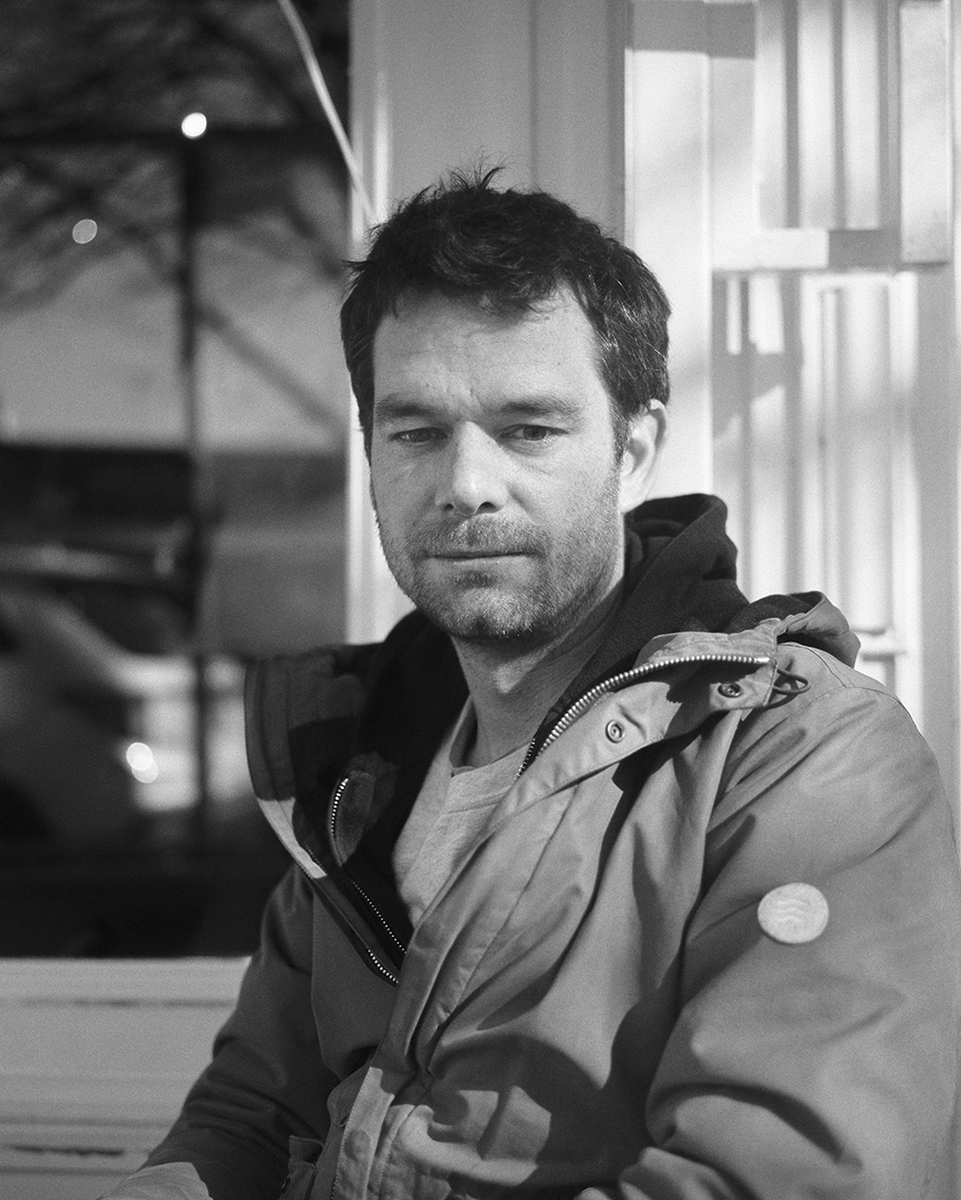
François Fleury’s photographic and cinematographic work is rooted in a questioning relationship with the Other. His practice of collage is a world permeable to photography, in which he syncretizes a relationship with the universe, renewing and reinventing. He is both a faithful witness to the reality that surrounds him and a utopian who dreams of a more beautiful, recomposed world.
Lucie Touya
François Fleury est un photographe, un cinéaste, un archiviste et un collectionneur insatiable d’images. Son rythme de travail alterne entre des prises de vue qu ’il réalise en différents points du globe et un travail d’éditing de ces images qu’il dif fuse dans le cadre d’expositions et de projets éditoriaux. Ses voyages se font en lien avec des sujets qu ’il souhaite sonder par lui-même, au contact d’une réalité non méd iatisée qu ’il va chercher par ses propres moyens. Cette matière première d’images se produit essentiellement au contact de cultures encore peu assimilées au développement capitaliste, lors de séjours prolongés en différents continents, au sein de communautés sous-représentéesvivant en marge des grandes métropoles. François Fleury a également réalisé de nombreux voyages dans des pays détruits par la guerre, portant alors son attention sur des organisations de vie repensées dans l’urgence, au sein d’environnements hostiles. Sa photographie est le support d’une réflexion sur l’humain, elle est guidée, motivée par ce que toutes ces situations de vie lui disent de la société qui est la sienne. Bien que nourri par ses lectures de voyageurs et d’anthropologues, François Fleury ne se définit pas comme un auteur de documentaires. Il cherche à traduire une émotion ressentie au contact de peuples évoluant dans un environnement où la nature prédomine, ou vivant dans des paysages urbains en ruine. En côtoyant des existences que les infrastructures économiques et sociales ne portent plus, il observe comment il est encore possible d’exister. Ce qu’il trouve d’humanité dans ces conditions fragiles, parfois extrêmes de survie, lui indique ce qu ’il cherche à titre personnel, en tant qu’artiste.Ses voyages l’ont condu it en Afghanistan, en BosnieHerzégovine, au Pakistan, en République du Congo, au Brésil, au Japon et dernièrement au cœur de la forêt Amazonienne où il a réalisé le film Waimaha, alternant entre récits mythologiques contés par des chamanes amérindiens et images construites en écho à leurs paroles. Durant le confinement, il a revisité un ensemble de ses photographies à travers la technique du cyanotype, ce procédé ancien de tirage exacerbant leur matérialité, leur grain et leur structure compositionnelle à la façon de tableaux.
Marguerite Pilven
François Fleury is a photographer, filmmaker, archivist and insatiable collector of images. His work alternates between shooting in different parts of the world and editing images for exhibitions and editorial projects. His travels are linked to subjects that he wishes to explore for himself, in contact with an unmediatized reality that he seeks out on his own. The raw material for his images comes mainly from contact with cultures as yet little assimilated to capitalist development, during extended stays on different continents, among under-represented communities living on the bangs of major metropolises. François Fleury has also traveled extensively in countries destroyed by war, focusing his attention on the urgent need to rethink the organization of life in hostile environments. His photography is a reflection on the human being, guided and motivated by what these situations tell him about his own society. Although nourished by his reading of travelers and anthropologists, François Fleury does not define himself as a documentary filmmaker. His aim is to convey the emotions he feels when he comes into contact with people living in environments where nature predominates, or in ruined urban landscapes. By rubbing shoulders with people whose economic and social infrastructures no longer support them, he observes how it is still possible to exist. His travels have taken him to Afghanistan, Bosnia-Herzegovina, Pakistan, the Republic of Congo, Brazil, Japan, and most recently to the heart of the Amazon rainforest, where he made the film Waimaha, alternating between mythological tales told by Amerindian shamans and images constructed to echo their words. During the confinement, he revisited a series of his photographs using the cyanotype technique, an ancient printing process that exacerbates their materiality, grain and compositional structure in the manner of paintings.
François Fleury
François Fleury is an artist and photographer based in Paris. After graduating unanimously from the Ecole des Beaux-Arts de Paris in 2003, he spent a year in Afghanistan. His photographic work “Afghanistan” was awarded the Prix Jeune Espoir 2004 Nicolas Feuillate by Kamel Mennour. The following year, sponsored by Christian Caujolle, he was shortlisted for the World Press Photo Joop Swart Masterclass for two consecutive years. He then initiated the “Bureau Iso”, a workshop on corporate culture at the Caisse des Dépôts, which gave rise to an exhibition at Nuit Blanche 2007 and a book of the same name. He works as an artist and curator with the La Générale collective in Belleville and Sèvres, and in 2011 exhibits a collection of Afghan studio portraits and “Salam” at Casa Asia in Madrid and Barcelona. In 2012, he moved to Uganda and carried out photographic projects in eastern Congo DRC, presented in the exhibition “De bile et de lumière” in 2013. The following year, he moved to Fordlândia, a city built in Brazil by Henri Ford in the 1920s, whose methods in the heart of the Amazon jungle ended in failure. He then travelled up the rivers of Amazonia in search of communities cut off from the Western world. This journey gave rise to the film “Waimaha” and the photography series “A river’s tale” and “Forêt négative”, exhibited at Les filles du Calvaires gallery in 2017. The film Waimaha was shown at the Quai Branly and at numerous international festivals, and won the Best Documentary prize at the Bogotà Web Festival 2019.